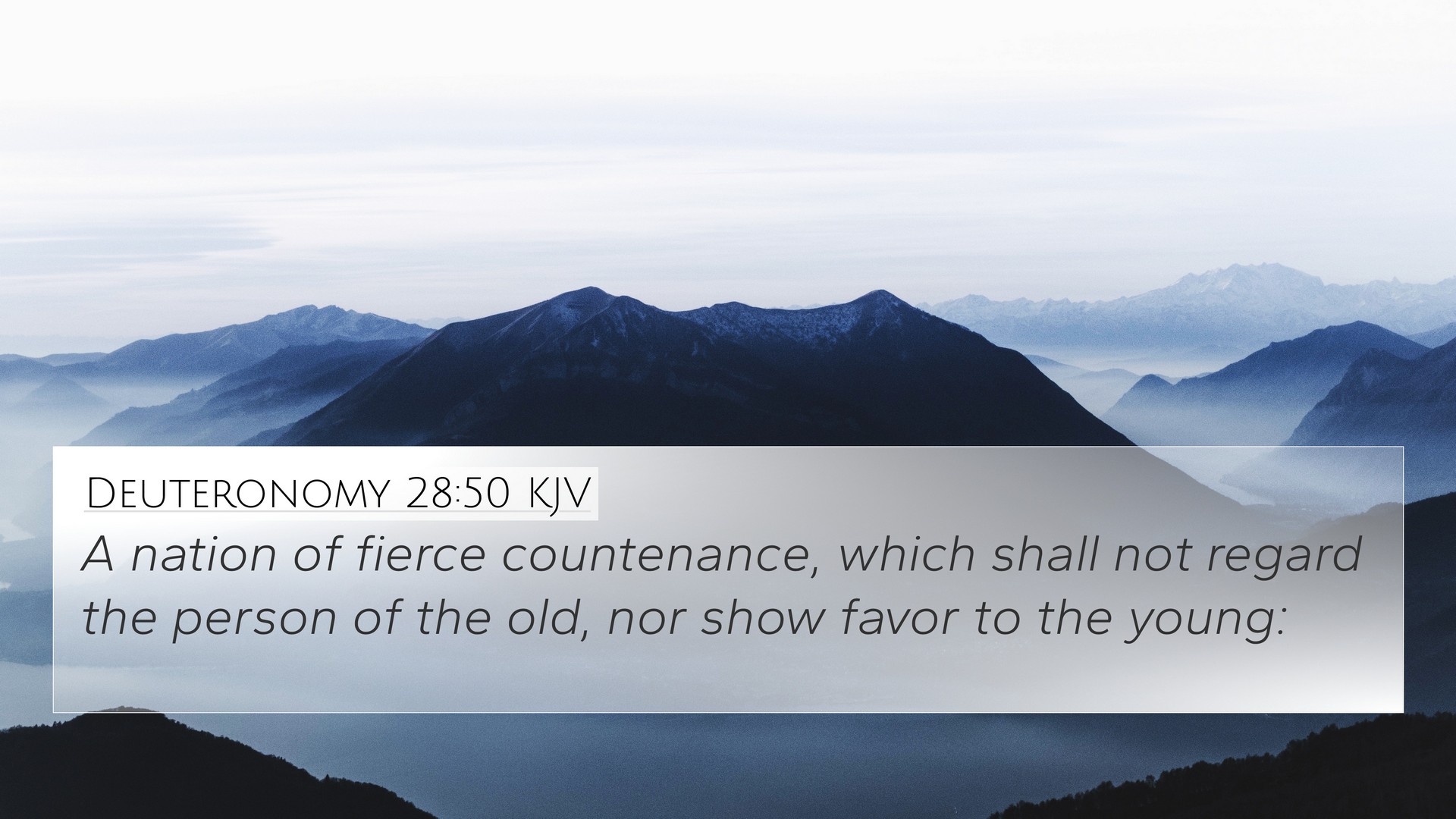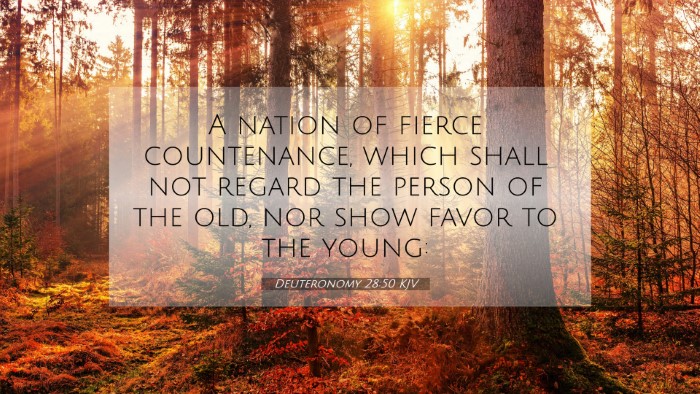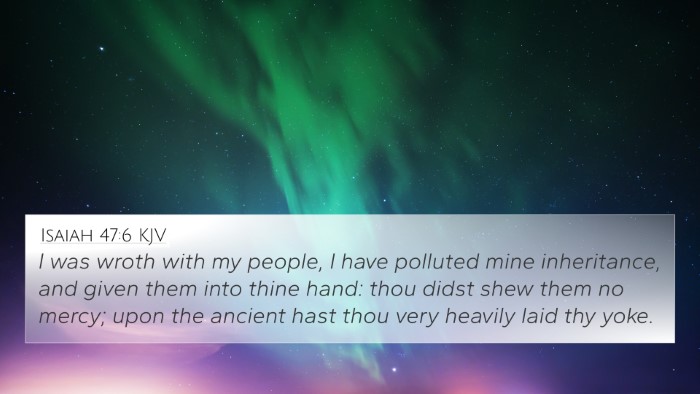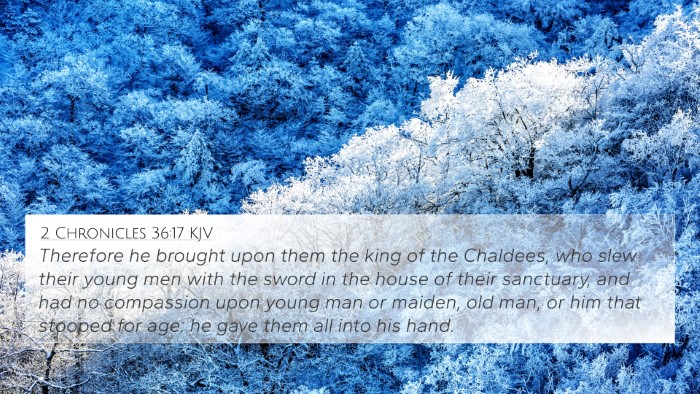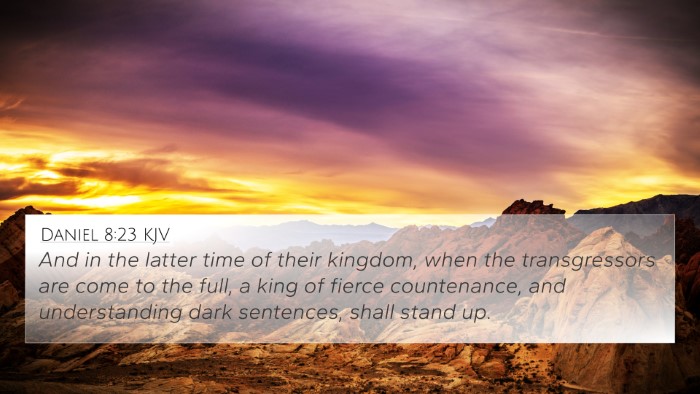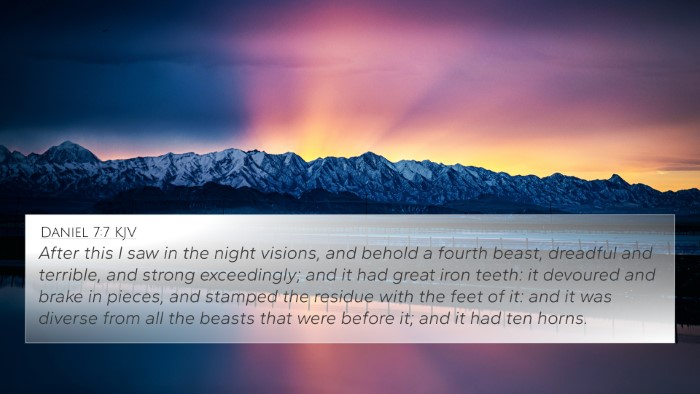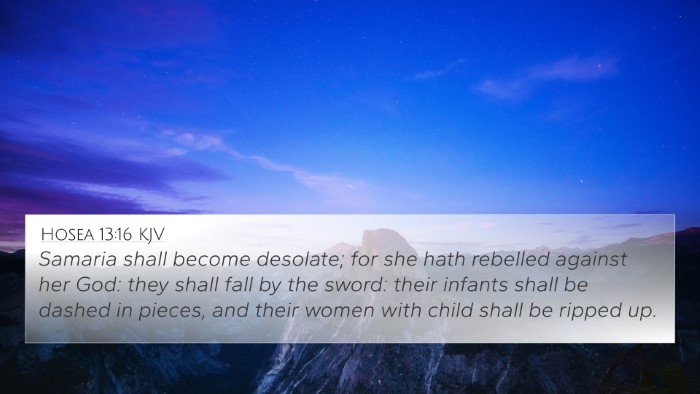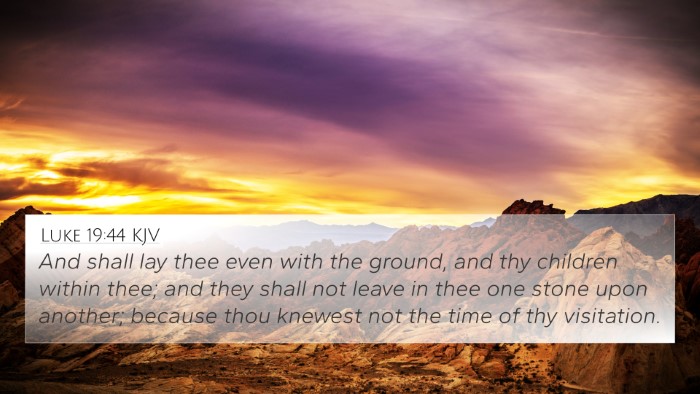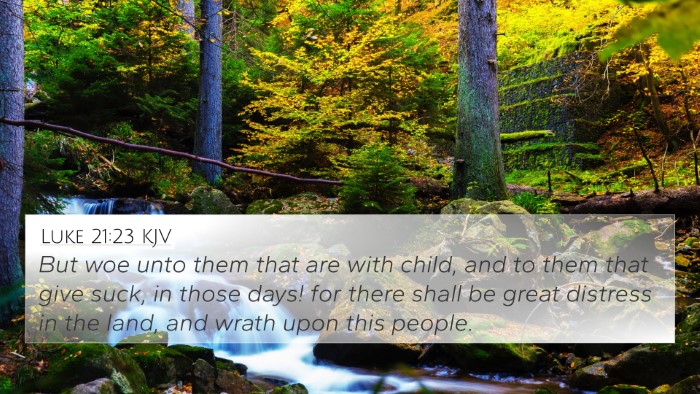Understanding Deuteronomy 28:50
Verse: Deuteronomy 28:50 (KJV) states, "A nation of fierce countenance, which shall not regard the person of the old, nor show favor to the young."
Context and Overview
This verse is part of a passage within the book of Deuteronomy where Moses communicates God's blessings for obedience and the curses for disobedience. The stark contrast portrayed here highlights the severe consequences that await Israel should they turn away from God. God foretells the rise of a ruthless nation that will oppress His people, illustrating the consequences of their unfaithfulness.
Commentary Insights
-
Matthew Henry:
Henry emphasizes the ferocity and merciless nature of the nation spoken of in this verse. He suggests that this fierceness signifies a lack of compassion, which would extend even to the elderly and the young, highlighting both the brutality and the severity of the coming judgment. This serves as a warning to the Israelites about the dangers of abandoning their covenant with God.
-
Albert Barnes:
Barnes points out that this verse underscores the threat posed by foreign adversaries who do not discriminate in their violence. The reference to “fierce countenance” denotes not only physical aggression but also a heart devoid of mercy. This passage calls believers to remember that straying from God’s path brings about dire consequences that may lead to suffering at the hands of those unkind and unyielding.
-
Adam Clarke:
Clarke provides a linguistic breakdown, noting that the term "fierce countenance" describes a people emboldened by aggressive attitudes toward others. He interprets this as an indictment against the Israelites' reliance on earthly means rather than on divine strength. Clarke urges readers to reflect on the moral decline that can result from a covenant breach, showcasing a severe warning against apostasy.
Bible Verse Cross-References
Deuteronomy 28:50 connects with several key passages throughout the Scripture that enhance its meaning and implications:
- Isaiah 13:17-18: This passage speaks about the Medes being raised up against Babylon, characterized by their fierce demeanor.
- Jeremiah 6:23: Here, God talks about fierce warriors who are described as having no mercy.
- Lamentations 5:12: The suffering of the innocent is highlighted, reflecting the lack of mercy a fierce nation might show.
- 2 Kings 25:1-21: This describes the conquest of Jerusalem by the Babylonians, illustrating the ferocity God warned about.
- Matthew 24:12: Parallel themes of lawlessness leading to a lack of love can be connected with the outcomes of divine disfavor.
- Romans 1:28: This speaks to God giving over humanity to a depraved mind, showing how lack of regard for God leads nations into brutality.
- Revelation 6:4: This speaks of a rider on a red horse, signifying warfare and the nature of fierce nations arising in the last days.
Thematic Connections
Deuteronomy 28:50 serves as a strong example of God's covenantal relationship with Israel and the themes of judgment and mercy. The coupling of God’s blessings with the consequences of disobedience echoes throughout Scripture:
- Judgment and Mercy: The theme of divine judgment—seen in verses like Amos 5:24, which calls for justice—directly speaks to the consequences of forfeiting divine protection.
- Nation's Conduct: The fierceness described in 28:50 reflects a broader biblical theme of how nations are raised and fall based on their moral compass, seen again in passages like Proverbs 14:34.
- God’s Sovereignty: The rising of fierce nations is a reminder of God's overarching control over history, referencing Isaiah 54:17, where it is affirmed that no weapon formed against God’s people will prosper.
Conclusion
Deuteronomy 28:50 informs believers of the consequences that arise from deviation from God’s will. By exploring cross-references, we understand these warnings are consistent throughout Scripture, illustrating an unbroken dialogue between various Biblical texts. Understanding these verses encourages a diligent approach to studying the Scriptures, as seen in tools for Bible cross-referencing and other Bible reference resources.
